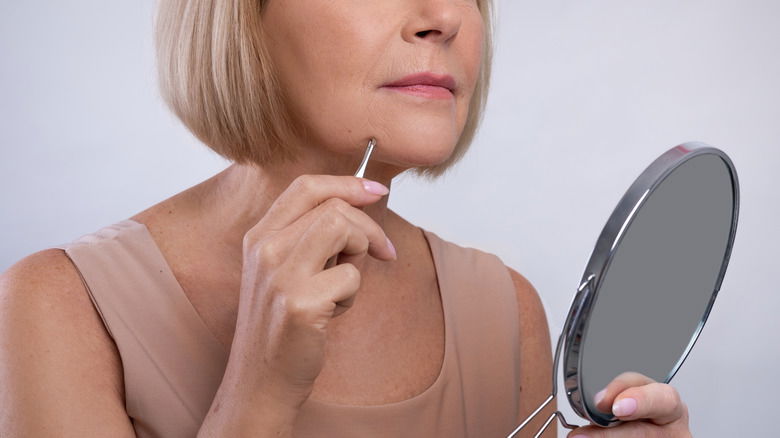People of all sexes can develop neck and chin hairs. However, female chin hair development could be more special than ever.
Similar to our skin and eye color, our hair is a distinctive aspect of our individuality. Some of us, even those with facial hair, have more hair than others.
The kind, quantity, and even the manner of hair growth are determined by a complicated interaction between different factors.
If you’re a woman with chin whiskers, you should know that:
You’re not alone — It’s a common and normal experience for many women, especially with age, hormonal shifts, or genetics.
It doesn’t define your femininity — Facial hair doesn’t make you less feminine, attractive, or worthy. Beauty standards are changing, and more women are embracing their natural features.
It could be hormonal — Chin hair may be related to conditions like PCOS, menopause, or thyroid imbalances. If it’s sudden, excessive, or comes with other symptoms, consider seeing a doctor.
Myths: In some cultures or superstitions, chin hair is believed to reveal personality traits. But these are myths, not based on science or psychology.
The Truth: A woman with chin whiskers can be shy or outgoing, kind or stern, funny or serious — just like any other woman. Personality comes from experience, environment, and individual temperament, not hair patterns.
If you’re seeing chin hair and wondering about its cause or how to manage it, that’s a valid question. But it says nothing about who someone is as a person. Personality is about who you are — not your hair
Confidence matters more than hair — The way you carry yourself, treat others, and value yourself is far more important than a few stray hairs.
Should women remove their chin whiskers?

Whether women should remove chin whiskers is entirely a personal choice — there’s no medical or moral requirement to do so unless the hair is a symptom of a condition that needs treatment.
Here’s a breakdown to help decide what’s right for you or someone asking:

Personal grooming preference
To feel more confident or polished
Due to cultural or societal norms
Partner preference (though this shouldn’t override personal comfort)
If the hair is coarse, dark, or growing quickly, it may stand out more, leading some to remove it for cosmetic reasons

Comfort with natural appearance
Part of embracing body positivity or rejecting unrealistic beauty standards
Tired of constant grooming or maintenance
Minimal or barely noticeable hair
To avoid skin irritation, ingrown hairs, or other side effects from removal
When This Condition Becomes A Concern

You should consult a doctor if:
– Sudden increase in facial hair
– Other symptoms like acne, irregular periods, weight gain, or hair loss
– Concern about PCOS, hormonal imbalance, or thyroid issues
In these cases, treatment might involve addressing the underlying cause, not just hair removal.





